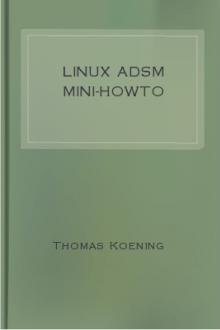Genre Other. Page - 314

des the title of the instruction, the normal execution time of the instruction, i.e., the time with no indexing and no deferring, the mnemonic code of the instruction, and the operation code number. The notation used requires the following definitions. The contents of a register Q are indicated as C(Q). The address portion of the instruction is indicated by Y. The index register address of an instruction is indicated by x. The effective address of an operand is indicated by Z. Z may be equal to Y or it may be Y as modified by deferring or by indexing.
Indexable Memory Instructions
Arithmetic Instructions
Add (10 usec.) add x Y Operation Code 40
The new C(AC) are the sum of C(Z) and the original C(AC). The C(Z) are unchanged. The addition is performed with 1's complement arithmetic.
If the sum exceeds the capacity of the Accumulator Register, the overflow flip-flop will be set (see Skip Group instructions).
Subtract (10 usec.) sub x Y Operation Code 4

s be'n ter Noo Orleens, an' Atlanty, an'Charleston, an' Richmon'; an' w'en I 'd be'n all ober de Souf I come terde Norf. Fer I knows I 'll fin' 'im some er dese days," she addedsoftly, "er he 'll fin' me, an' den we 'll bofe be as happy in freedomas we wuz in de ole days befo' de wah." A smile stole over her witheredcountenance as she paused a moment, and her bright eyes softened into afar-away look.
This was the substance of the old woman's story. She had wandered alittle here and there. Mr. Ryder was looking at her curiously when shefinished.
"How have you lived all these years?" he asked.
"Cookin', suh. I 's a good cook. Does you know anybody w'at needs a goodcook, suh? I 's stoppin' wid a cullud fam'ly roun' de corner yonder 'telI kin git a place."
"Do you really expect to find your husband? He may be dead long ago."
She shook her head emphatically. "Oh no, he ain' dead. De signs an' detokens tells me. I dremp three nights runnin' on'y dis las' week dat Ifoun' him."
"He may h

t of the "L" below them. It was perhaps six miles across; and all over the comparatively smooth surface jutted dark projections. Viewed through the glasses, they had a regular, uniform appearance.
"By Jove!" ejaculated the doctor, almost in awe. He leaned forward and scrubbed the dead-light for the tenth time. All four men strained their eyes to see.
It was the architect who broke the silence which followed. The other three were content to let the thrill of the thing have its way with them. Such a feeling had little weight with the expert in archeology.
"Well," he declared jubilantly in his boyish voice, "either I eat my hat or that's a genuine, bona fide city!"
As swiftly as an elevator drops, and as safely, the cube shot straight downward. Every second the landscape narrowed and shrunk, leaving the remaining details larger, clearer, sharper. Bit by bit the amazing thing below them resolved itself into a real metropolis.
Within five minutes they were less than a mile above

our eighth landing, all that passed. For R-14 was old again, older than any of the others.
And then, on October sixteenth, Mason opened the door of the locked cabin. It happened quite by accident. One of the arelium-thaxide conduits broke in the Marie Galante's central passageway, and the resulting explosion grounded the central feed line of the instrument equipment. In a trice the passageway was a sheet of flame, rapidly filling with smoke from burning insulation.
Norris, of course, was in the bridge cuddy with locked doors between us and him, and now with the wiring burned through there was no way of signalling him he was wanted for an emergency. In his absence Mason took command.
That passageway ran the full length of the ship. Midway down it was the door leading to the women's lounge. The explosion had jammed that door shut, and smoke was pouring forth from under the sill. All at once one of the women rushed forward to announce hysterically that Mason's wife, Estell

hile life as a whole, history, character, and destiny are objects unfit for imagination to dwell on, and repellent to poetic art? I cannot think so. If it be a fact, as it often is, that we find little things pleasing and great things arid and formless, and if we are better poets in a line than in an epic, that is simply due to lack of faculty on our part, lack of imagination and memory, and above all to lack of discipline.
This might be shown, I think, by psychological analysis, if we cared to rely on something so abstract and so debatable. For in what does the short-winded poet himself excel the common unimaginative person who talks or who stares? Is it that he thinks even less? Rather, I suppose, in that he feels more; in that his moment of intuition, though fleeting, has a vision, a scope, a symbolic something about it that renders it deep and expressive. Intensity, even momentary intensity, if it can be expressed at all, comports fullness and suggestion compressed into that intense moment. Yes, ev

r a moment Bill stood over him, nostrils flaring, his whole body tense and waiting. But Tom was too groggy to get up.
"Oh, Bill, how could you!" Christy cried out, dropping to her knees beside Tom.
Bill strode with measured step to the door. There he turned, and looking back with a sneer, said, "Sweet dreams, Dream Boy!"
* * * * *
In a luxurious office of Asteroid Mining Corporation on the twenty-third floor of a Manhattan skyscraper a furious official of the corporation faced an uncomfortable underling.
"I've heard of some pretty crude tricks in my time, Heilman, but breaking into the Staker Company's office like a common house thief takes the tin medal for low grade brains!" the official ranted, pounding his desk. "I suppose you thought that was an excellent way to advance yourself in the corporation, eh? Finesse, Heilman, finesse. That's what it takes in matters like this. Asteroid Mining, before it got the monopoly, stopped competition, but not by common housebreaking--"

[Turning apologetically to VERA] I beg your pardon, Miss Andrews, I mean Miss--er----
VERA Revendal.
MENDEL [Slightly more interested] Revendal? Then you must be the Miss Revendal David told me about!
VERA [Blushing] Why, he has only seen me once--the time he played at our Roof-Garden Concert.
MENDEL Yes, but he was so impressed by the way you handled those new immigrants--the Spirit of the Settlement, he called you.
VERA [Modestly] Ah, no--Miss Andrews is that. And you will tell him to answer her letter at once, won't you, because there's only a week now to our Concert. [A gust of wind shakes the windows. She smiles.] Naturally it will not be on the Roof Garden.
MENDEL [Half to himself] Fancy David not saying a word about it to me! Are you sure the letter was mailed?
VERA I mailed it myself--a week ago. And even in New York---- [She smiles. Re-enter KATHLEEN with the recovered candlestick.]

They walked toward a house of colored rocks.
"Miss Daphne Trilling's," said Mr. Greypoole, gesturing. "They threw it up in a day, though it's solid enough."
When they had passed an elderly woman on a bicycle, Captain Webber stopped walking.
"Mr. Greypoole, we've got to have a talk."
Mr. Greypoole shrugged and pointed and they went into an office building which was crowded with motionless men, women and children.
"Since I'm so mixed up myself," the captain said, "maybe I'd better ask--just who do you think we are?"
"I'd thought you to be the men from the Glades of course."
"I don't have the slightest idea what you're talking about. We're from the planet Earth. They were going to have another war, the 'Last War' they said, and we escaped in that rocket and started off for Mars. But something went wrong--fellow named Appleton pulled a gun, others just didn't like the Martians--we needn't go into it; they wouldn't have us so Mars didn't work out.

| +---------------------------------------------------------------------------+
The above command should return the following for serial port 1:
+---------------------------------------------------------------------------+ |/dev/ttyS1, UART: 16550A, Port: 0x2f8, IRQ: 3 | +---------------------------------------------------------------------------+
The port and IRQ numbers should match the information placed in the syslog by the ACP module when it was loaded: kernel: Mwave Modem, UART settings IRQ 0x3 IO 0x2f8
If the information returned by setserial indicates that the UART is 'unknown' or if the IRQ and I/O resources do not match what you have in the syslog, you will need to reconfigure. Check the setserial man pages to learn how to setup the resources on your ttySx to match what appears in the syslog output.
If you have problems running setserial, you may have a resource conflict. Before using insmod mwave, check /proc/ioports and /proc/interrupts to make sure the resources

ADSM is a network-based backup system, sold by IBM, in use at many organizations. There are clients for a large variety of systems (different UNIX brands, Windows, Novell, Mac, Windows NT). Unfortunately, at the time of this writing, there is no native Linux version.
You will have to use the SCO binary, and install the iBCS2-emulator for running ADSM. This description is for ADSM v2r1.
At the time if this writing, I am only aware of a version which works with the i386 version of Linux.
2. Installing the iBCS module
The iBCS2 module is available from ftp://tsx-11.mit.edu/pub/linux/BETA/ibcs2. If you are running kernel version 1.2.13, get ibcs-1.2-950721.tar.gz, unpac it and apply the patches ibcs-1.2-950808.patch1 and ibcs-1.2-950828.patch2. You can then type "make" and install the iBCS modlue with "insmod".
For a 2.0 kernel version, get